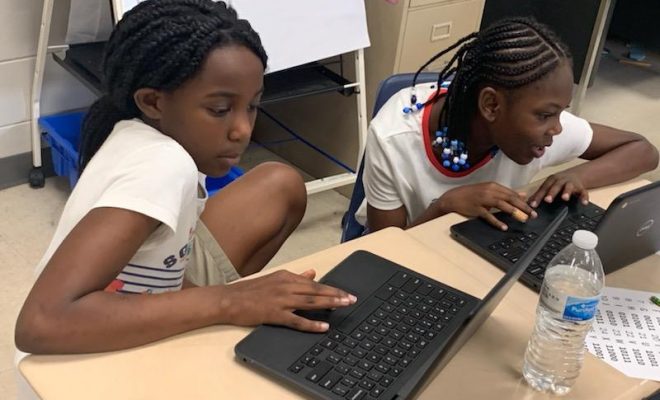Implementing Curriculum Compacting in Your Classroom

All educators agree that differentiating instruction for students is very important. Yet, many districts cannot put this policy into practice. An almost unlimited amount of remedial curricular content has helped educators make necessary modifications for lower-achieving learners. However, we have lacked an orderly method to make comparable modifications for learners who are already achieving at well above average levels.
This article describes curriculum compacting, an easy-to-implement teaching strategy for modifying the curriculum for above-average ability learners. This strategy can also be used for any learner who displays strengths or high-interest levels in one or more content areas. The process has proven its effectiveness in a carefully controlled national research study and several years of class utilization in a variety of educational settings across the nation.
Curriculum Compacting is a teaching strategy specifically designed to make appropriate curricular modifications for learners in any curricular area and at any grade level. Essentially, the process involves (1) outlining the goals and outcomes of a particular unit or segment of instruction, (2) determining and documenting which learners have already learned most or all of a specified set of learning outcomes, and (3) providing replacement strategies for content already learned through the utilization of teaching options that enable a more challenging and productive use of the learner’s time.
Before starting curriculum compacting, remember to start small. Be within your comfort zone for your inaugural attempts. This will help you develop confidence in the strategy and your ability to implement it, allowing you to branch out from that point on.
So, what do you do? Well, first you have to decide which of your learners are potential candidates for curriculum compacting. You probably don’t need to get far into the school year to get an idea of which learners finish their work quickly, seem to have a wealth of outside information, and score well with little apparent effort. These kids are prospects for curriculum compacting.
Next, you should pre-test these potential candidates. The pre-test can be from the textbook (or whatever curricular contents you’re utilizing), or it can be one that you create. It doesn’t have to be extensive. To utilize spelling as an example, it can be as simple as pre-testing the kids on that week’s words before they’ve been given the list. The pre-test should cover the main objectives that you want the learners to learn in the unit with other subjects.
By examining the pre-test results, you’ll be able to see which learners have already learned all of or large portions of the content. Continuing with our spelling example: If a kid scores a 100 percent on their spelling pre-test before you’ve even given them the list to study, before writing the words ten times each, before they used each of them in a sentence before they looked up all of their definitions, and before studying them at home with mom and dad—well, then, why the do they have to still jump through all those hoops throughout the week? He shouldn’t have to. He’s just proven to you that they have learned that content. Now you can compact their curriculum.
In spelling, they could be given a harder set of words, ones they haven’t learned yet, and still do the same assignments with them. For other subjects, the compacting process can be more complex. Let’s say a learner shows through their pre-test that they have learned six of the science unit’s eight objectives. Well, in this case, the learner has learned much of the content, but not quite all of it. For the portions they haven’t yet learned, they will be learning right along with the rest of the class.
But for the portions they have learned, they can now “buy time” (so to speak) to explore the topic in greater depth, do an independent project on a subject of interest to them, work with a mentor who can expand their horizons on the topic, move ahead in the curriculum, write an essay on the topic, etc. A thousand possibilities present themselves. Just which ones the learner pursues will depend in part on available resources, available space, available time, the kid’s interests, and your flexibility.
The essence here is that the kid should be allowed to learn. If this learner were forced to sit through all of the lessons on the content they have just proven they’ve learned, then what exactly are learning? That school is for jumping through hoops, whereas real learning takes place when they get home and can read their books and conduct experiments in their homemade basement laboratory? School should be for learning, too! But unless we utilize strategies like curriculum compacting, it will continue to be a place where gifted kids mark time, re-learning information they mastered the first time.





